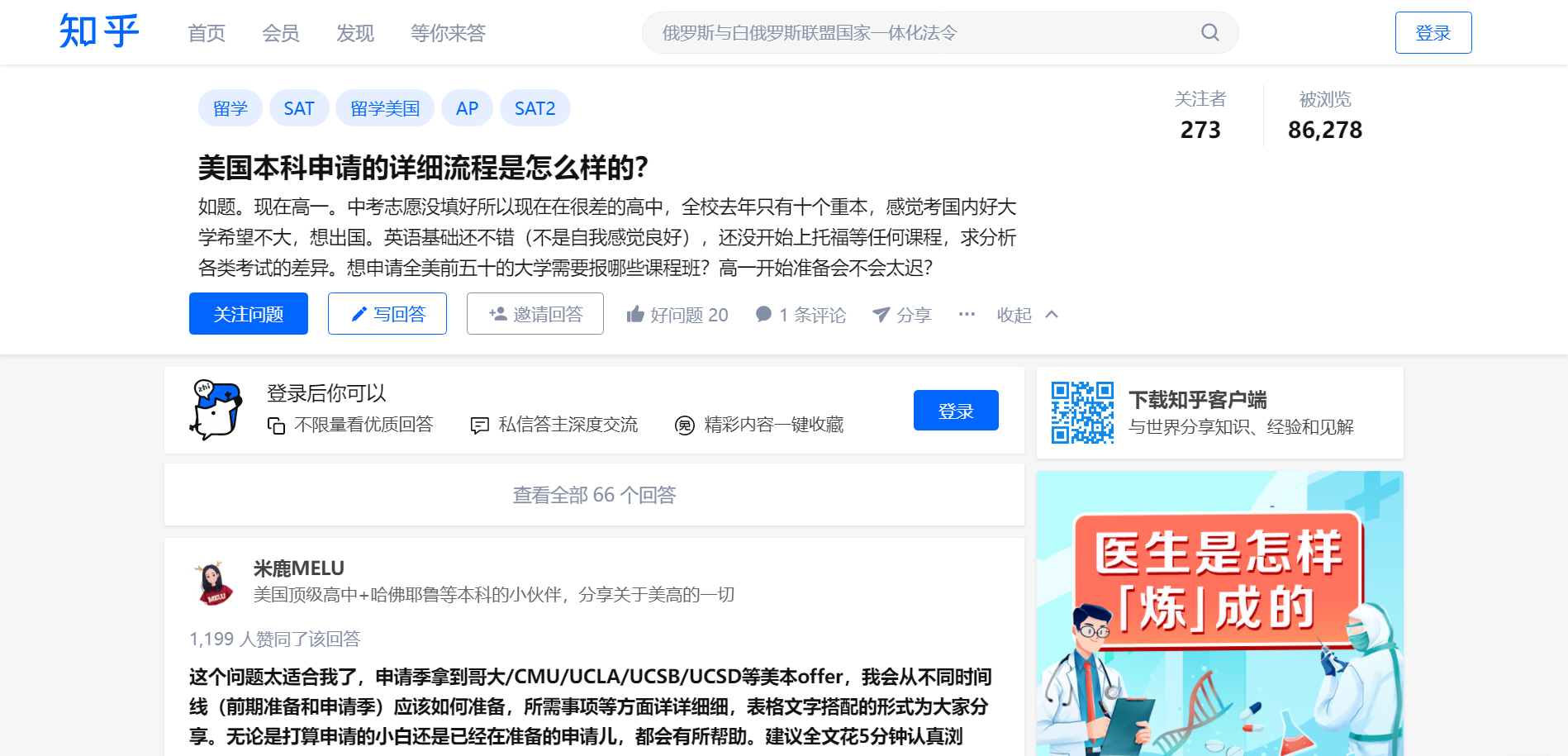The Role of Zhihu in China's Digital Landscape
Which schools have the programs I’m looking for?
Why is college so expensive?
Where can I find stories about the Chinese student experience at a school I’m about to apply to?
In China, younger users, especially Gen Z, have taken to using the platform Zhihu to ask these types of questions and help them gain a bit more information in advance of making a big decision. As Baidu has become less trustworthy in the eyes of Chinese internet users, other knowledge platforms have gained ground among those doing serious research. Zhihu, with 420 million registered users and often described as Chinese Quora, is one such platform. For colleges and universities hoping to engage with prospective Chinese students, then, Zhihu presents a unique opportunity. Effectively marketing on Zhihu does often require a local Chinese website, as is the case on many Chinese search engines and knowledge platforms.
Zhihu’s logo
“As long as Gen Zs are spending time on Zhihu, the platform is something that brands should keep a close eye on,” remarks Asa Mazor-Freedman, specialist advisory at Gartner, in a recent article in Vogue Business. “It has such a strong hold on China’s growth-driving Gen Z audience.” Indeed, the platform has seen steady growth over the past several years; according to Zhihu’s most recent quarterly results report, average monthly active users reached 94.3 million in the second quarter of 2021, representing a growth of 46.2% over the second quarter of 2020. Moreover, by the end of last year, Zhihu had more than 43.1 million cumulative content creators who contributed 315.3 million questions and answers, according to its prospectus.
Known for its comparatively high-quality and expert-driven content, Zhihu is created, edited, and organized within its own community of users. Zhihu posts tend to show up at the top of search pages, a pattern likely to be reinforced by the recent release of a wiki-section within Zhihu, and Zhihu results for educational institutions often rank higher than the official pages for those same institutions. Paid marketing on Zhihu, including pop-up, banner, and newsfeed ads, is an option with the potential to spur further interest in an educational institution or company. In addition, by participating in the conversation on Zhihu and managing Q&A content, schools and companies can increase potential students’ and users’ exposure to their programs and products and drive traffic to official websites, all without paying a dime.
Zhihu offers a number of tools that can enable this type of engagement. Flow ads on Zhihu can direct traffic, particularly those users with a stated interest in international higher education, to a local .cn website. An established presence on Zhihu also lends itself to search engine optimization (SEO), improving the ranking of the university for targeted search terms. In addition, Zhihu articles advocating on behalf of the university both contribute to SEO as well as improve the overall reputation of the institution online.
“What is the process of applying to an undergraduate institution in the US?” asks a Chinese high school student.
With an increase in investment into the production and dissemination of video content that began in May of 2020, Zhihu has positioned itself well to take advantage of the new global appetite for high quality video. Indeed, some have noted that it has ambitions to expand well beyond text-based content, embracing popular multimedia functions and introducing paid content and membership programs. Since its launch in 2011, Zhihu has steadily developed into one of the most engaging and diverse platforms in China’s digital landscape. Its growing user base of Gen Z students presents any educational institution with an opportunity to engage with a new and curious audience. As such, understanding and being able to effectively navigate this platform could play a major role in establishing or expanding a presence in the local Chinese market.


